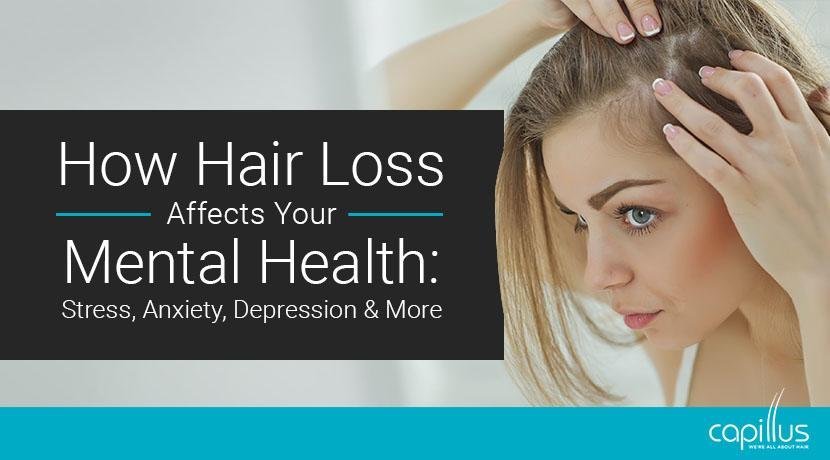Both men and women experience some degree of hair loss during their lives. While it is normal for thinning hair to occur as a result of aging, there are a variety of other reasons why adults can lose hair from their scalp. Some of the most common causes of hair loss include female and male pattern baldness, also known as androgenetic alopecia, as well as thyroid disease and iron deficiency anemia. Stress, emotional trauma, and hormonal changes can also cause your hair to change in thickness or texture.
While losing your hair can alter aspects of your appearance, it can also affect your mental health. A variety of emotional conditions occur as a response to hair loss. In the guide below, you will learn more about the links between hair loss and conditions such as stress, anxiety, and depression. Once you have this information in mind, it will be easier to make decisions about how to improve your overall wellness. When you know how to feel better, you will also be more prepared to take steps to get your hair back to its normal quality.







Understanding How Hormones Can Affect Hair Loss
How Psoriasis Can Affect the Scalp & Your Hair Growth